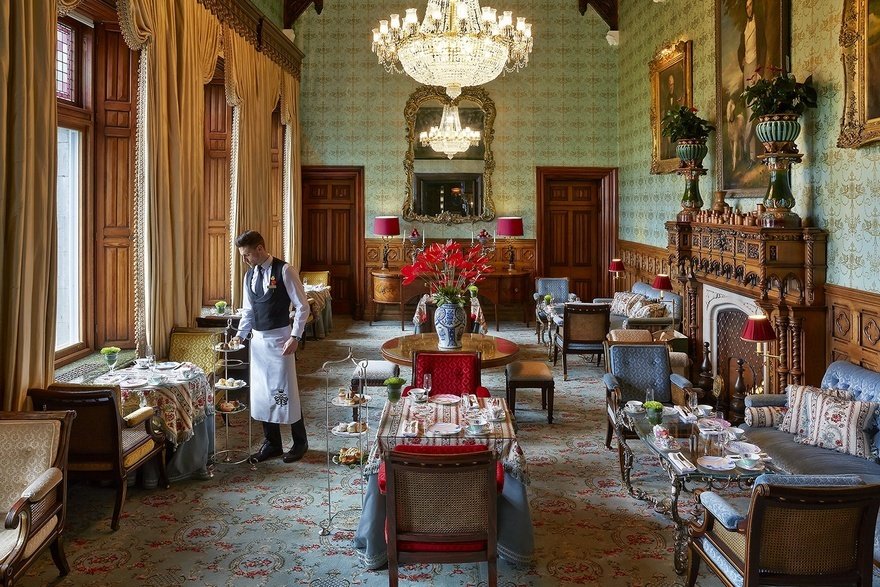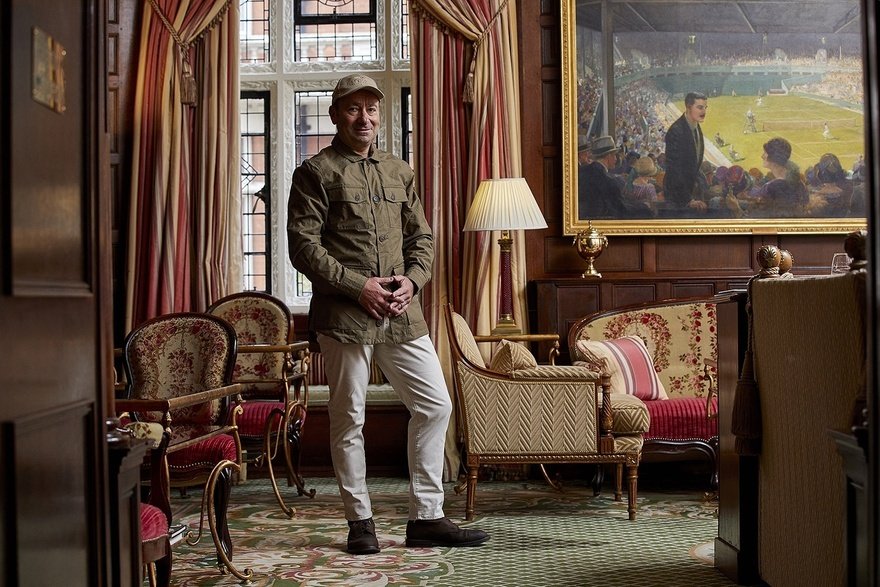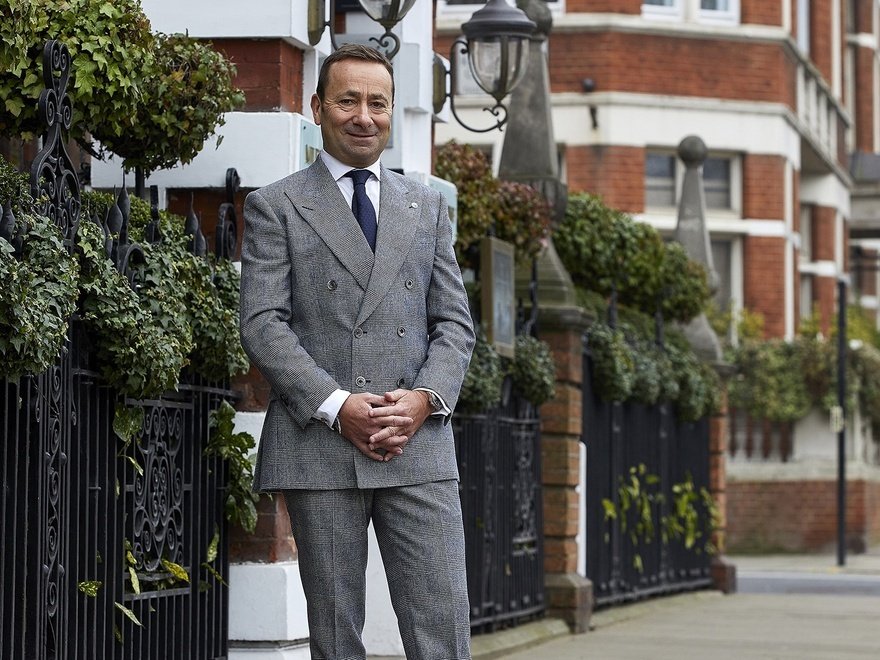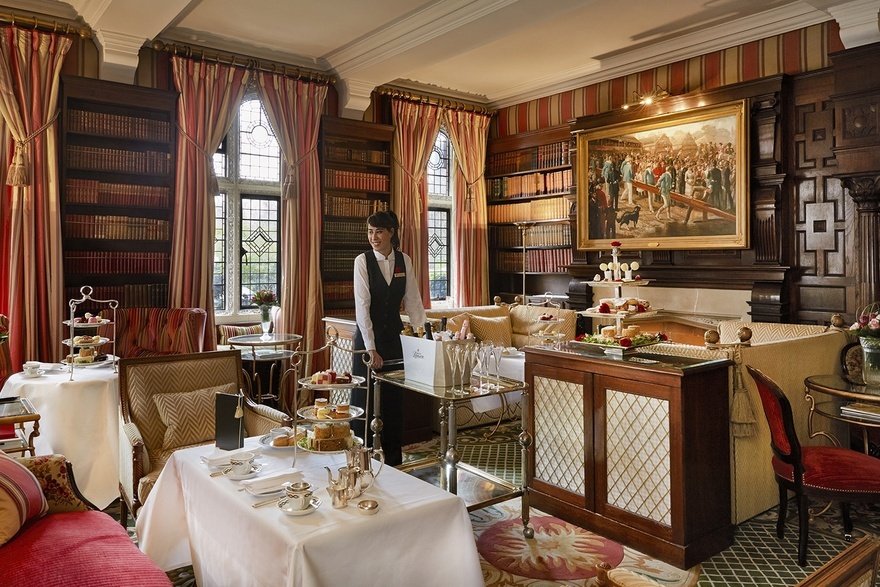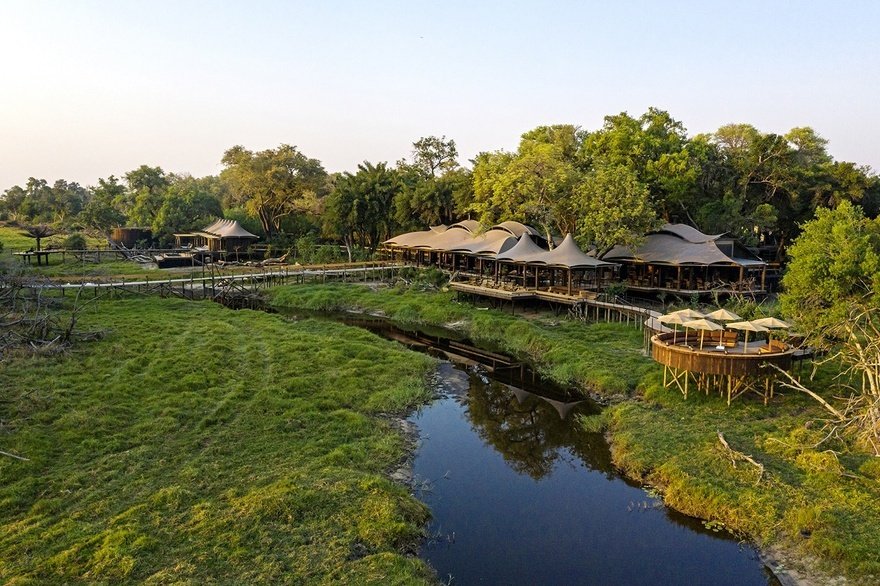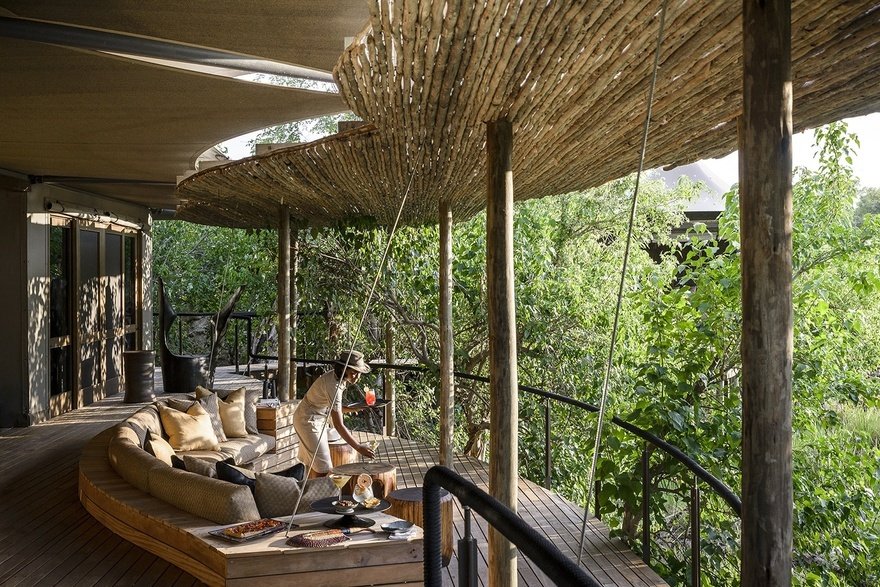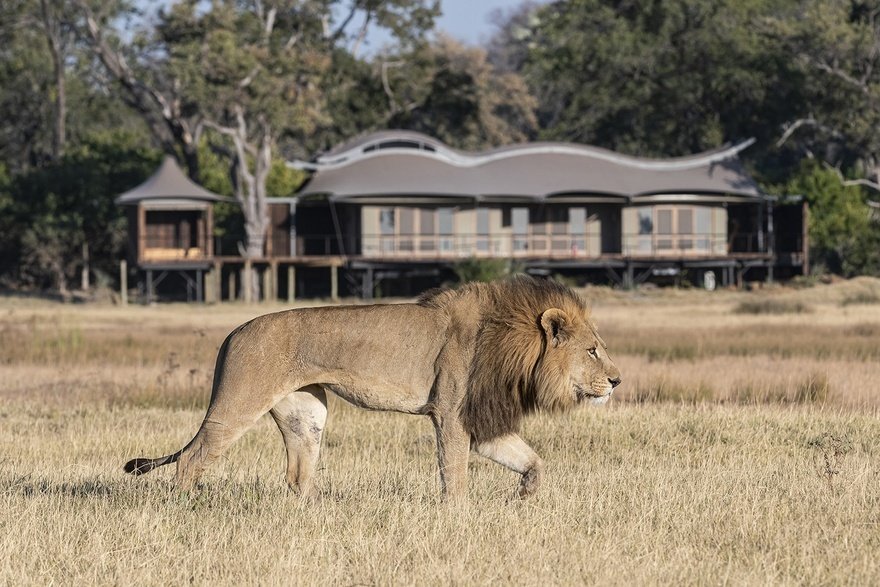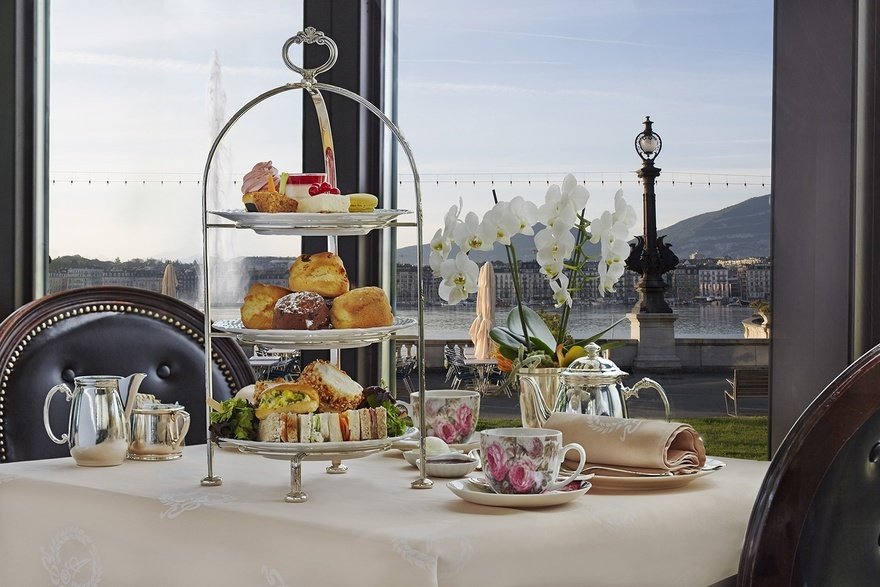Red Carnation Hotels' Jonathan Raggett on how the international brand has survived and thrived through lockdown
Red Carnation's managing director Jonathan Raggett explains how the global hotel brand has survived and thrived throughout the pandemic, adapting to each country's differing trading conditions and even opening a new Botswana hotel. Rosalind Mullen reports.
While many hotels in the UK have been struggling to get their head around lockdowns, reopenings, government grants and new ways of operating in the past year, small global companies have faced an even bigger challenge. The family-owned and run Red Carnation Hotels has 18 properties across the UK, Guernsey, Ireland, the US, Geneva, Botswana and South Africa, each with its own approach to the pandemic.
"It's certainly kept me busy," says managing director Jonathan Raggett, who was in quarantine in London when we spoke, having just returned from South Africa. "You look at one location and it is not too bad; you look at a different location and everything has to shut down."
Raggett and his team have had to get their heads around a variety of support schemes. In October, Guernsey – which stipulated a 14-day quarantine for visitors – switched from a salary support scheme, paying staff 80% of their salary up to £8.50 an hour for a 35-hour week, to a grant scheme based on £800 per room, per month. Hotels opened from June to 22 January and are now back in lockdown.
Meanwhile, the Republic of Ireland – where hotels reopened during the summer with travel restrictions – offers a wage subsidy scheme for retained staff who are not working or working reduced hours. Businesses can also apply for government support under a scheme that compensates loss of revenue during lockdown of up to €5,000 (£4,280) a week. Red Carnation's Ashford Castle, for instance, received €65,000 (£55,814) between 13 October and 31 December and altogether, the group's two hotels in Ireland received grants totalling €2.1m (£1.8m) up to the end of December.
At the other end of the scale, South Africa started reopening hotels in July, but has not offered direct government support (see below).
Raggett, who was named The Caterer's Hotelier of the Year in 2009, lists the UK among those governments providing the most useful support. The group has claimed £6.5m in furlough scheme subsidy payments to date; 70% of staff are on furlough, including the more recently introduced flexi-furlough, meaning there have been no redundancies. The company is also claiming a £9,000 one-off grant, introduced in December.
"Our hotels lost profit last year and now they're losing money. The battle is to create cash and reduce the losses," says Raggett.
Our hotels lost profit last year and now they're losing money. The battle is to create cash and reduce the losses
"We're grateful to government for introducing furlough, but we still have to meet the cost of National Insurance and pensions. In addition to payroll, there are the costs associated with the properties, such as maintenance and rents where we don't own the freehold."
Those hotels that are back on their feet include the three in South Africa (see below), which are fully open, albeit with the cost of PPE and fewer tables in the restaurants.
"If the UK hotels were open with the same restrictions, we'd still be making money. The only reason we're not is that we're not allowed to open," says Raggett, who feels strongly that UK hotels should be able to trade.
"Go into the supermarkets and that's where you're catching [Covid]," he says. "We all invested in Perspex screening, masks, reducing tables for social distancing and new cleaning systems. Red Carnation spent tens of thousands of pounds on a non-toxic steam-cleaning system [ACT CleanCoat]. We were so on top of making sure we were a safe place for guests and our teams."
People power
One of Raggett's priorities has been to retain and engage staff. He kept a skeleton team at each hotel to oversee maintenance and administration and worked alongside his executive team and key head office staff – all on reduced salaries – to support general managers "navigating unchartered waters" and the furloughed staff through email updates, online quizzes and so on.
"We quickly realised we needed to ensure contact was maintained with our teams. We did all we could to look after their wellbeing," he says.
Among the creative ways they involved furloughed staff, one general manager made doorstop deliveries of personalised Easter eggs, while at Bushmans Kloof in South Africa, non-maintenance staff pitched in to irrigate and manage the walled garden.
Online training sessions are also on offer, including those relevant to home life, such as cyber-security awareness. Staff coming off furlough take part in a three-hour return-to-work session, covering subjects such as coping with change and new protocols.
"We will keep staff if we can and are giving them new skillsets and wellbeing support. A lot of people have forgotten the daily routine of work, so the idea of going back will be strange."
Redeployment has also been a strategy. Gaps in staffing levels appeared when EU staff went home during the UK's first national lockdown and didn't return. Moreover, as hotels prepared to reopen in July last year, it was evident there would be more demand for country properties than for those in London.
Raggett responded quickly: "If we were going to control staff costs, we wouldn't be able to reopen the hotels in London with a full complement of staff. But with vacancies at our properties in Dorset and Ireland, we deployed members of the London team to fill those positions. Some 38 staff from London moved to Dorset."
Similarly, the recent opening of Xigera Safari Lodge in Botswana (see below), meant there was an opportunity to offer a three-month secondment in Africa to a deputy general manager and executive chef.
To get fit for the future and strengthen cross-selling, the company also restructured its sales and reservations teams, creating a central reservations office for the UK hotels.
"Those staff will have a job with us but be part of a bigger team. It will be more exciting and potentially helps them to grow," says Raggett.
Pivoting and preparing
The challenges of the past year have spurred on initiatives to pivot the business. Pre-Covid, the meetings and events department relied on selling rooms for up to 150 people, but with Covid restricting numbers to 30, technology and WiFi have been strengthened so that some delegates can attend remotely.
"Business travel will be slower to come back than leisure," says Raggett. "Business people will have got used to working from home using Microsoft Teams and so on, so they now know they don't need to go into London for a meeting."
Other initiatives include turning the gift shop at Ashford Castle, County Mayo, into an online shop and developing virtual experiences for guests to enjoy at home. These include staff on flexi-furlough delivering afternoon teas to customers in London – with more than 500 sold on Mothering Sunday. The Gin & Tonic experience involves a selection of gins with paired tonics delivered to customers while a bartender provides a tutored session on Zoom – in one instance a corporate client bought this for 75 people.
"It's not what we do as hoteliers usually, but it is a way of creating cash and generated some interest," says Raggett. "And keeping our chefs and bar teams active is part of looking after their wellbeing. We want to sustain their mind and soul and create an interest in the hotel so they feel part of something."
Raggett's focus for 2021 is to develop immersive experiences for guests. Last year, London's Chesterfield Mayfair hotel had a series of seven-course dinners with live performances by members of the Royal Philharmonic Orchestra, and he wants to harness this success.
"We're not just selling breakfast and dinner; we're selling reasons to come to London and are working hard on offering experiences," he says.
We're not just selling breakfast and dinner; we're selling reasons to come to London
So, for instance, the London properties will tap into their local networks to offer guests the chance to attend curator talks at the British Museum and V&A. Elsewhere, they can take a chauffeur-driven shopping tour in Florida's Palm Beach, learn how to bake Irish soda bread on a farm close to Ashford Castle, and at the newest addition to the collection, Xigera Safari Lodge in Botswana, guests are able to sleep under the stars in the Baobab Treehouse.
On the home-front, it's full steam ahead, with workers now back on-site at two new hotels. The 30-bedroom 100 Princes Street, Edinburgh, will launch in Q4 this year and Hatch Hall in Dublin will open in 2023. But, as the rest of the UK portfolio prepares to open on 17 May, it won't quite be business as usual.
"The good news is we have the vaccine and by 2022 we'll hopefully be getting back to normality. But we're resigned this year to seeing very little international business and are looking at the domestic market," says Raggett.
He's sanguine about this. The five-AA-star, 30-bedroom Summer Lodge hotel in Evershot, Dorset, had the best year in its history last summer and Raggett expects a repeat this year.
"Compared with our London hotels, Dorset used to bring in the lowest profit and now it's gone the other way. It used to get weekend business versus midweek and that has shifted."
Similarly, Ireland saw good domestic business levels last year, despite travel restrictions throughout the summer. Ashford Castle, which usually enjoys 75% of business from the US, achieved an occupancy of 80% thanks to domestic guests.
"We're still making money at that level," says Raggett, adding that the Lodge at Ashford Castle also retained 95 weddings booked for 2020 by offering alternative dates in 2021/22 and that gift voucher sales in the run-up to Christmas hit a record.
Raggett has weekly calls with general managers globally to share information and lessons learned. "Some hotel operators have used Covid as an excuse not to do quite so much for guests, but I've been loud about the fact we must do more. We can't be as tactile, but we can add things, not remove things. We are not reducing rates, so we need to add more to justify that – not less," he says.
A newly launched Red Carnation app offers guests a contactless experience. The group's strategy is to add value by including breakfast or afternoon tea in the packages, relaxing check-in and check-out times and offering free cancellation up to 6pm on the day of arrival in London and Geneva. The validity dates on gift vouchers have also been extended to two years, to secure bookings.
"I want Red Carnation to be remembered in years to come by the fact we didn't have a knee-jerk reaction to the pandemic. We're not after a quick-cheat fast profit. I want to make sure we're doing the right thing. The people who come back to our hotels are loyal. The harder job that lies ahead is to get those guests back who used to come, but haven't done so [during the pandemic]."
I want Red Carnation to be remembered in years to come by the fact we didn't have a knee-jerk reaction to the pandemic
He adds: "People's expectations will be bigger than ever, so we need staff to be at the top of their game. We have kept our teams and will be ready to go."
The view from South Africa
The lack of inbound travel this year means the three South African properties have not been as busy as they would have been – particularly the five-star, 70-bedroom Twelve Apostles hotel near Cape Town, which tends to attract international business. Nevertheless, they have performed better than their UK sisters.
The five-star, 86-bedroom Oyster Box hotel near Durban, which tends to rely on domestic business, has benefited from the fact people are not able to holiday abroad and is "running at 85%-90% occupancy at a good rate", says Raggett.
Despite the prevalence of a new variant of coronavirus in the country, there has not been a further lockdown following the first in March 2020. However, the restrictions put in place from the end of December to 1 February did impact business. These included no alcohol sales, an 8pm curfew and the closure of beaches.
Throughout, Red Carnation has made looking after staff a priority. When it comes to government support, Raggett says South Africa is among the most disappointing. "If people lose their jobs there's no support, so we decided to work with the protocols and keep our businesses open – if not, people face starvation," he says.
During the times when hotels were only able to serve domestic business travellers, staff were put on a three-day week. Once the hotels were able to take bookings from the domestic leisure market and international travel resumed, they increased hours. Although there is no direct government support for hotels, they have been able to claim and pay over to eligible staff the wage subsidy available under the Temporary Employees Relief Scheme.
"Red Carnation is family-run and owned; looking after our staff is an important part of what we are. To date, we've made no redundancies there. Instead, we haven't replaced any staff who have left," says Raggett. "If all we were looking for was profit and nothing else it would have been right to reduce headcount, but our staff are loyal and trained by us and we want to do right by them – and the business. When business returns we will have seen this through together."
To ensure they can hit the ground running, the staff are being trained to be more adaptable, and the hotels are making the structure less departmentalised.
"They are more agile," says Raggett. "For example, if there is a vacancy in the room service department, a member of the fine-dining team will be able to [cover]."
New opening – Xigera Safari Lodge, Botswana
One of Red Carnation's most exclusive properties is also its newest. The $35m (£25m) Xigera Safari Lodge on the edge of the Moremi Game Reserve opened on 1 December with room rates of $4,000 (£2,875) per person per night and with 125 staff looking after just 24 guests at a time.
Overlooking the Okavango Delta, a Unesco World Heritage Site, the 12-suite lodge is the dreamchild of the 90-year-old patriarch of Red Carnation, Stanley Tollman, who built parent company TTC with his wife Beatrice.
The Botswana government limits visitors to the region – there are only about 1,000 beds across 2,000 sq miles – promoting a low-impact, high-revenue tourism model that withstands high prices.
Facilities at the lodge include alfresco fine dining, helicopter safaris and the option of staying in the Baobab Treehouse, a kilometre away from the lodge, with a guide stationed close by.
Obviously, it hasn't been the best time to open. The lodge is designed for the international market and although Botswana is open for business, nobody is travelling. Even so, the first visitors have trickled in from southern Africa, and Raggett says there are reservations for June, July and August from guests arriving from India, Russia and the US – mostly on private jet, a mode of transport that he believes will become increasingly popular post-Covid for those who can afford it.
The philosophy underpinning this new lodge is sustainability and supporting local communities. Working with the TreadRight Foundation, Xigera is free from single-use plastic and 95% of power is provided by a Tesla solar-hybrid system. Future plans include using solar energy for the game-view vehicles, with charging points already in situ.
At a glance: A year of Covid in a global hotel operation
Red Carnation has 18 luxury hotels in eight countries, so has seen the different measures and levels of support introduced by governments. Here is a snapshot of Florida versus Geneva:
Florida: The Chesterfield Palm Beach
- Closed 17 March.
- The restaurant (but not bar) reopened 21 May.
- Hotel fully reopened 12 June, with no further closures.
- In June, the four-star, 53-bedroom hotel successfully applied for a loan of $554,000 (£396,811) from the federal government under the Paycheck Protection Program scheme. It is now applying for "complete forgiveness" of the loan and will be looking to apply for grants that may be available under a new stimulus package approved by Congress.
Geneva: Hotel d'Angleterre
- The five-star, 39-bedroom hotel remained open throughout for accommodation, but there was little take-up.
- The bar reopened on 13 May for four nights a week in May and the restaurant reopened in September.
- The restaurant and bar closed from 2 November, but hotel accommodation remains open.
- Since the start of the crisis, the hotel has been claiming salary support under the reduced working hours (RHT) scheme, which is based on the government refunding 80% of the employee's salary for hours not worked. As of December, the company has claimed CHF1.9m (£1.5m) under this scheme.
- At the start of the crisis, the hotel was granted a ‘soft' loan of CHF500,000 (£387,013) from the Swiss government. It is applying for a grant under the new subsidy scheme ‘cas de rigueur' based on subsidy of 10% of the hotel's 2019 revenue up to a maximum of CHF500,000.
- The hotel has also received CHF13,400 (£10,372) compensation for the enforced closure of the bar and restaurant during lockdown.
Continue reading
You need to be a premium member to view this. Subscribe from just 99p per week.
Already subscribed? Log In



